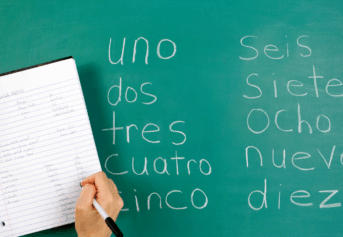How many hours a day will you spend with Spanish? This is perhaps the most important consideration and does not refer to how many hours do you spend in a Spanish language classroom. It means how much time do you spend listening, reading, speaking or writing in Spanish. It can be listening to podcasts while walking the dog, reading, watching movies, listening to songs in Spanish or being engaged in a conversation in Spanish. In some ways, exposure to Spanish outside the classroom can be more intense than exposure inside the classroom, unless you are lucky enough to have one-on-one instruction.













